#Jason Kahn
Explore tagged Tumblr posts
Text
You Nakai — Reminded by the Instruments: David Tudor's Music (Oxford University Press)
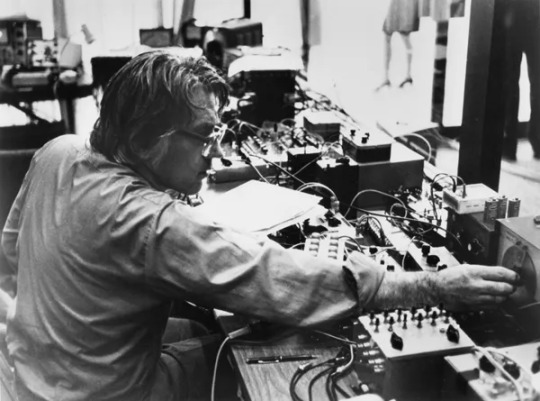
You Nakai's Reminded by the Instruments: David Tudor's Music is a mammoth and vividly detailed analysis of the late David Tudor's trajectory from boy prodigy on the church organ to one of the first purveyors of live electronic music, with stops along the way as go-to pianist interpreting scores from most of the major composers of experimental music through the 1950s. Clocking in at 768 pages with over 300 images of Tudor's performances, instruments, schematics and block flow diagrams, the book goes into intense detail and will not be an easy read for those looking for a mere chronology of Tudor's work. Nor will the book please those in search of anecdotes about Tudor's personal life. As the title implies, this book is mainly about the instruments Tudor developed and used in his live-electronic work from the early 1960s until his death in 1996.
The very notion of what Tudor considered an instrument takes Nakai's research down a long, and at times, circuitous path through numerous interviews with former friends and colleagues, such as Gordon Mumma and Pauline Oliveros, to mining the archives of the David Tudor Papers at the Getty Research Institute in Los Angeles, the David Tudor Collection at Wesleyan University in Middletown Connecticut (with over 500 instruments; 150 of which were built by Tudor himself) and the Merce Cunningham Dance Foundation Records at the New York Public Library. This trove of material included receipts, crumpled notes, random scribbles on the backs of envelopes, empty packages of electronic components, clippings from hobby electronics magazines, letters from strangers, train and bus tickets, circuit plans, photos, tapes of interviews, video recordings and bills of material for various electronic projects.
If this at all sounds overwhelming, you'd be more than right in thinking so. And it seems this was also the case for Nakai, who at the beginning of his work on the book, which went from 2007-2019, knew next to nothing about analog electronics. The actual idea of writing about Tudor's work stemmed from a random peek into the archives at the Getty Research Institute when Nakai was doing research there for another project. This led to Nakai spending the next 12 years of his life studying and writing about Tudor's work, which for Nakai most resembled a black box that, in order to be fully understood, demanded to be dismantled and looked at from the inside. To achieve this, Nakai employed a method of research he termed reverse-musicology, in which he tried to approach Tudor's materials as Tudor would have approached them himself. But what did this mean exactly?
Part of the answer lies in Nakai's chosen title for the book, taken from a fragment of the Walt Whitman poem A Song for Occupations, which Tudor had scribbled in one of his notebooks around 1955: All music is what awakens from you when you are reminded by the instruments. For Tudor, being reminded by the instruments meant, in his words, Observing electronic components and circuitry as individual and unique, rather than as servomechanisms, revealing their personalities, directly related to the particular musician involved with them. The deeper this process of observation, the more the components seem to require and suggest their own musical ideas, arriving at that point of discovery, always incredible, where music is revealed from the 'inside,' rather than 'outside.'
This quote is one of the few directly written by Tudor in Nakai's book. Tudor was not known for talking much about his work, if at all. He was often viewed as something of an enigma or living puzzle by his friends and colleagues. One of Nakai's main premises for working on this book was to approach Tudor's materials as Tudor did himself. Which in Tudor's case would be how he went about trying to solve the particular puzzle involved with interpreting a musical object, composition or performance. As John Cage once said about his friend, favorite musician and interpreter of his work, Tudor's interest in puzzles invited the whole thing of indeterminacy. To these ends, Nakai devised a two-fold method of approaching the massive puzzle that was Tudor's work: 1) Observe the given material thoroughly in an unbiased way until it reveals its own nature. 2) Bias the subsequent approach to the material based on this nature.
Nakai went to herculean lengths to understand the nature of Tudor's instruments. At the Wesleyan University collection he opened up the 500 instruments stored there and copied down their circuit plans, without at first even understanding what he was looking at. He took photos of nearly every single bit of material at the Getty Research Archives and transcribed all the recordings of Tudor's interviews to be found in the New York Public Library. Through this research Nakai hoped the nature of Tudor's instruments and their place in his work as a composer and performer would reveal themselves.
Tudor himself would have to be counted as the main instrument in Nakai's study. In 1959 the Italian composer Sylavno Bussotti sent Tudor a new collection of pieces entitled Five Piano Pieces for David Tudor. As Bussotti explained in a letter to Tudor, the pieces were not meant as an homage to Tudor but that they were written for Tudor the instrument, as one might compose a piece for orchestra or string quartet. Even before Bussotti's piece, many composers, including John Cage, Morton Feldman and Earle Brown, had written their pieces explicitly with Tudor in mind. They were composing in the context of how David Tudor would solve the puzzle of interpreting their pieces, many of which were graphical scores that gave an enormous amount of leeway in how they could be realized.
Tudor also viewed himself as an instrument, though this notion took root many years before composers began considering him as one. Tudor's lifelong interest in the work of the Austrian occultist Rudolph Steiner, who once wrote, Each human being was composed as a musical instrument, helped Tudor see the connection between the physical nature of the material he was working with and a metaphysical concern of his own nature. This side of Tudor's work, like many aspects of his life, was little known during his lifetime. Profoundly influenced by Steiner's book, The Inner Nature of Music and the Experience of Tone: The Occult Basics of Music, Tudor even went so far as to become a member of the Anthroposophical Society in 1957. It was this occult approach to understanding the nature of musical objects, as well as himself, which guided Tudor through much of his work.
Nakai faced many challenges in writing about Tudor's work, and not just because Tudor himself spoke or wrote very little about what he was doing. Beyond the hurdle of Tudor's reticence was a problem of concept that Tudor brought to the notions of composer vs. performer, score vs. instrument and composition vs. improvisation. Tudor dismantled, expanded and sometimes just downright ignored these categories. There was also the issue of, as Nakai terms it, Tudor's low threshold of boredom, moving in the course of his life from organ to piano to bandoneon and then electronics. Even when Tudor finally arrived at his phase of working solely with electronics, this was often coupled with visual elements, such as his decades-long work with the Merce Cunningham Dance Company or many projects in collaboration with visual artists.
"Reminded by the Instruments" leaves the door open to many other sides of Tudor's life, which Nakai freely admits to omitting in his opus. This would include, for example, Tudor's contact with Borbetomagus and what he thought about the nascent noise music scene in the United States — something Tudor referred to as pop groups! Nakai also avoided spending much time on areas covered in other books about Tudor, such as writing about Rainforest (probably Tudor's most famous piece), his piano realizations in the 1950's or participation at the Darmstadt seminars and Black Mountain College events with John Cage. The main focus here is the instruments and the transitions during Tudor's life. In particular, how Tudor went from being a performer of other people's music to being a composer of his own.
And this is often what is referred to as the great mystery surrounding Tudor's career: why did he stop performing on piano? Was it, as he (half?)-jokingly recounted to Alvin Lucier, Alcohol goes very well with electronic music; it's not so good with piano playing! Or, as he recounted in a joint interview with John Cage in 1972 on KPFA radio, I got tired of the sound of it. And I had a great desire to not have to hear it anymore! As much surrounding Tudor's life, this will probably remain a mystery. Just as his transition from interpreter of other people's work to being a composer in his own right. When did this happen, how? Part of the difficulty in answering such questions lies in the fact that Tudor redefined what composition meant. Or what performance meant. Or even what an instrument was. Virtually every aspect of Tudor's work went against traditional concepts. Which isn't to say that Tudor was at all interested in what all these concepts meant, traditionally or experimentally. Rather, the very nature of the material Tudor worked with caused these concepts to acquire new meaning.
Aside from the incredibly detailed look at Tudor's instruments and his approach to electronic music performance, the book offers an ancillary view of experimental music from the 1950's to the time of Tudor's death in 1996, touching on indeterminacy, prepared piano techniques, graphical scores, the introduction of live-electronics (as opposed to tape playback of pieces composed in a studio) and sound installation. So many of the ideas discussed in this book that Tudor began working with very early on are in such common usage today that we might as well imagine they'd always been with us. This would include no-input systems, field recordings, sound visualization, hardware hacking, circuit bending and sound art, just to name a few. "Reminded by the Instruments" provides the mind-boggling perspective that David Tudor had his hand in nearly all these developments, back in a time when there was no internet. When circuit diagrams had to be clipped out of magazines like Popular Electronics and everything Tudor needed to realize his ideas had to be built from scratch, either by himself or by commissioning electrical engineers to do it for him.
Nakai sums up his effort in Reminded by the Instruments as not so much to produce a faithful representation of Tudor's work, but to coordinate the scattered pieces of the puzzle to create a lively realization that future readers may use for this or that purpose. In which case, this book will provide virtually endless inspiration for anyone trying to find their own way as composers or performers or something else as yet to be defined until they themselves discover what that is.
Jason Kahn
#you nakai#reminded by the instruments#david tudor#oxford university press#jason kahn#bookreview#dusted magazine
7 notes
·
View notes
Text
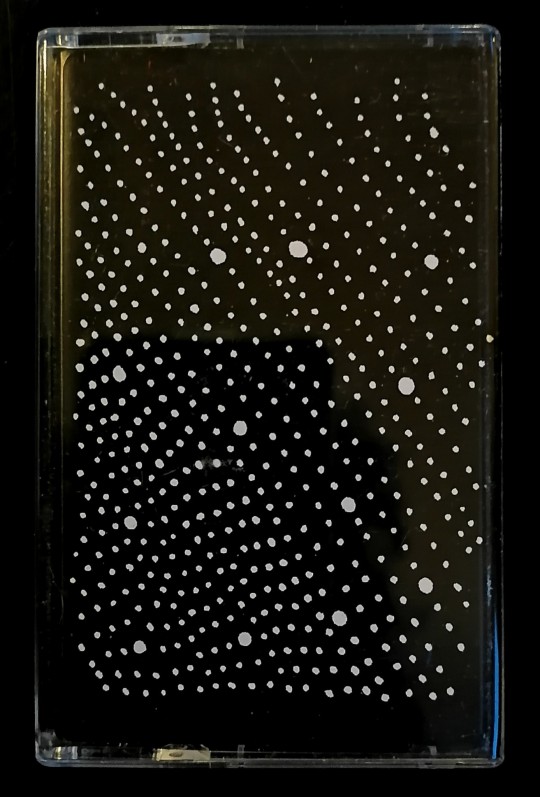



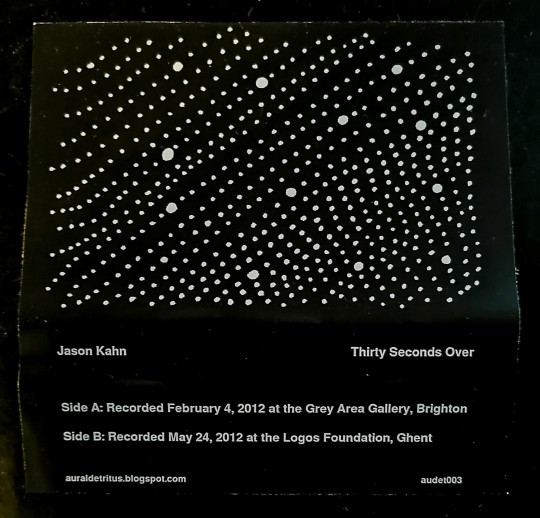

Jason KAHN
"Thirty Seconds over"
(cassette. Aural Detritus. 2015 / rec. 2012) [US]
3 notes
·
View notes
Text
1.5 Months presents: Sonic Bothy Ensemble / Jason Kahn / Jer Reid & Raymond MacDonald at The Glad Cafe, Glasgow: 14/11/24.

You can find out more about this edition of 1.5 Months here.
#1.5 months#glad cafe#glasgow#sonic bothy#jason kahn#jer reid#raymond macdonals#ali robertson#nichola scrutton#evie waddell#sonia allori#allan wright#adam green#dawson#gio#glasgow improvisers orchestra#experimental music#alsn#inclusive ensemble#noise#avant#free improv#improvisation#electroacoustic#no input mixing desk#electronics#new music#first sbe gig for almost two years so come fill yr boots!
1 note
·
View note
Text
Album Review - I Smile When the Sound Is Singing Through the Space (duo w/ Jason Kahn)
Jason Kahn / Alice Hui-Sheng Chang I Smile When the Sound Is Singing Through the Space (Self-Released)
As a longtime admirer of Jason Kahn’s work, I Smile When the Sound Is Singing Through the Space left my jaw on the floor. Tawainese vocalist Alice Hui-Sheng Chang and Kahn have worked together since 2015, and this cathartic exposition was recorded during a 2023 residency at Ting Shuo Hear Say in Tainan, Taiwan. Clairvoyance takes shape in the extended techniques and guttural washes. Voices quiet and explode, running through frequencies like a twisting monsoon flood across parched earth. Each turn leaves me further captivated. The timbres of each voice simultaneously complement and spoil the other, building an uncertain tension between various diverging expressions. It’s a wild, enthralling ride. At points it’s like Kahn is fading into nothingness, his voice broken and scattered as Chang melodiously twitters and dances in the dust left behind. It’s rife with drama and release. Fans of Tazartès and Charmaine Lee take note. Highest recommendation.
By Brad Rose
Published on Foxy Digitalis online music magazine
The Capsule Garden Vol 3.12: May 8, 2024
0 notes
Text
youtube
jason kahn & richard francis -- 9: 54
1 note
·
View note
Text
OC Names
Criminal Minds
Spencer Reid's love interest - Alyssa Jackson (oc, no relation to anybody on the show)
Aaron Hotchner's love interest - Olivia Rossi (Dave's daughter)
Luke Alvez's love interest - Sarah Reid (Spencer's twin sister)
Bridgerton
Colin Bridgerton's love interest - Audrey Lilyington (cousins to Kate's family)
Anthony Bridgerton's love interest - Polly Fetherington (Penelope's older sister)
Benedict Bridgerton's love interest - Caroline Abernathy (Lucy's older sister)
Grey's Anatomy/Station 19
Andrew DeLuca's love interest - Lindsey Webber (Richard's daughter)
Mark Sloan's love interest - Grace Shepherd (Derek and Amelia's sister)
Alex Karev's love interest - Haley O'Malley (George's sister)
Jack Gibson's love interest - Ashley Sloan (Mark's Sister)
MCU
Peter Parker - Taylor Rogers (Steve's sister)
Bucky Barnes' love interest - Lauren Stark (Tony's sister)
Steve Rogers' love interest - Rebecca Barnes (Bucky's sister)
Thor - Alex Maximoff (Pietro and Wanda's sister)
One Tree Hill
Lucas Scott's love interest - Madison James (Hailey's sister)
Nathan Scott's love interest - Anna Sawyer (Payton's sister)
Q's love interest - Natalie Scott (Nathan's full sister, Lucas' half sister)
Outer Banks
JJ Maybank's love interest - Lily Routledge (John B's sister)
John B. Routledge's love interest - Melissa Jane Maybank (MJ) (JJ's sister)
Rafe Cameron's love interest - Cassie Roberts (progue!reader)
Supernatural
Dean Winchester's love interest - Samantha Singer (Bobby's daughter)
Sam Winchester's love interest - Stephanie Bradbury (Charlie's sistere)
John Winchester's love interest - Meghan Harvell (Wililam Harvell's sister, Jo's aunt)
Shameless
Lip Gallagher's love interest - Alison Milkovich (Mickey and Mandy's sister)
Pretty Little Liars
Jason DiLaurentis' love interest - Andy Rivers (Caleb's sister)
Mike Montgomery's love interest - Emma Hastings (Spencer's sister)
Noel Kahn's love interest - Kate DiLaurentis (Alison and Jason's sister)
Caleb Rivers' love interest - Brooke Montgomery (Aria and Mike's sister)
#fanfiction#greys anatomy#greysanatomy#jj maybank imagine#atticus lincoln#jj maybank#jj maybank x routledge!reader#oc#spencer reid x oc#spencer reid#aaron hotchner#amelia shepherd#alex karev#jason dilaurentis#mike montgomery#noel kahn#caleb rivers#lip gallagher#lucas scott#nathan scott#peter parker#bucky barnes#steve rodgers#thor#andrew deluca#mark sloan#jack gibson#station 19#pretty little liars#imagines
62 notes
·
View notes
Text
Curimomo #18
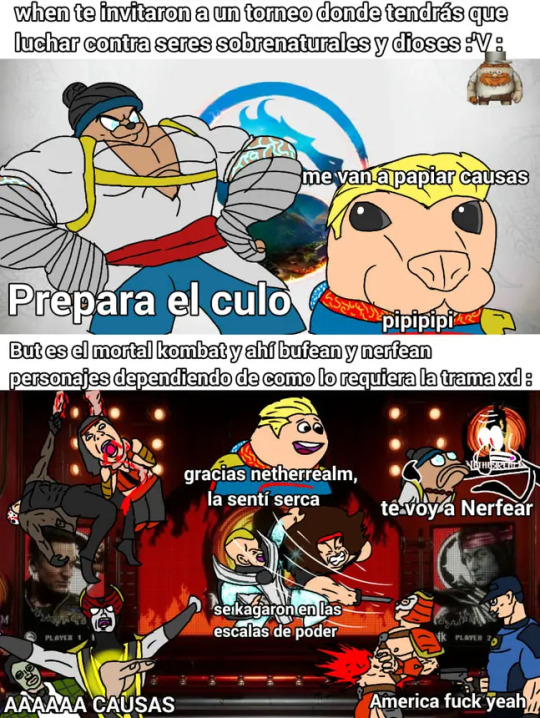
Curimomo #18 - mortal kombat
Los niveles de poder en esa saga son casi inexistente
#memes#momos#shitpost#curimomo#liu kang#homelander#jason voorhees#leatherface#shinnok#shao kahn#Stryker#john rambo#kronika#mortal kombat#mortal kombat 11#mortal kombat 1
28 notes
·
View notes
Text
Series
I am currently writing two series.
the first is for Pretty Little Liars
OC is one of The Liars
She is particularly close to Hanna
She starts off in a relationship with Noel but it will soon transfer to Jason and then Mike and then probably back to Jason
This will cover trauma (PTSD, lying, stalking, sexual assault, underage sex, anxiety, depression, underage drinking, bullying, substance abuse, other mental health challenges, violence, murder, etc.)
the second is for Outer Banks
OC is John B's sister
She and John B have the same Dad but not the same Mom
She's best friends with Kiara
Kiara and JJ probably won't have a thing at all
This will also cover trauma (including but not limited to: physical abuse, mental abuse, sexual assault, anxiety, depression, underage drinking, underage sex, underage smoking (weed and tobacco), bullying, substance abuse, other mental health challenges, violence, murder, etc.)
Slow burn, but eventually JJ X OC
both will be posted to my wattpad account too. i will post the link at a later date.
#masterlist#outerbanks#outer banks#jj maybank#jj maybank imagine#jj maybank imagine angst#outerbanks rewrite#outer banks imagine#imagines#imagine#pretty little liars#prettylittleliars#pll#jason dilaurentis imagine#jasondilaurentisimagine#mike montgomery#mikemontgomeryimagine#mike montgomery imagine#noel kahn#noel kahn imagine#angst
15 notes
·
View notes
Text

Via Jason Mitchell Kahn's Instagram Story (May 1st, 2023)
47 notes
·
View notes
Text
Request Information
We write x reader and x OC stories/oneshots, so don't be afraid to give your character a name, unless you prefer it being the reader!
We typically write the reader as a female, but if you prefer gender neutral, let us know!
We generally write for male people/characters as well.
We write:
Fluff
Angst
Hurt/Comfort
Comfort
We do not write smut!
Feel free to send any request for one-shots/imagines, or if you have an idea for a mini-series, don't be afraid to suggest that as well.
If you request, there is no 100% guarantee that it'll be written, but we will definitely try our best to fulfill everyone's requests!
When something is requested, we will try to get to it as quickly as possible, but we are both full time students and play sports, so please bear with us!
We write for a lot of things, but here is the list if you want to go through it all! If you don't see a specific person/show or anything on the list, still feel free to request it. We might have accidentally left it out, but if not, we can still attempt to write that person for you!
You can submit requests by clicking the link at the bottom of this post or the link at the top of the blog, both will take you to a form to submit your request!
FULL LIST OF WHAT WE WRITE FOR:
Shows/movies:
13 Reasons Why
Clay Jensen
Justin Foley
911 (Lonestar and the original)
Eddie Diaz
Evan Buckley
Judd Ryder
Owen Strand
Paul Strickland
TK Strand
Wyatt Harris
American Horror Story
Jimmy Darling
Kit Walker
Kyle Spencer
Michael Langdon
Tate Langdon
Xavier Plympton
Attack On Titan
Armin Arlert
Jean Kirstein
Big Time Rush
Carlos
James
Kendall
Logan
Breaking Bad
Jesse Pinkman
Cobra Kai
Eli Moskowitz (Hawk)
Johnny Lawrence
Miguel Diaz
Robby Keene
Criminal Minds
Aaron Hotchner
Derek Morgan
Spencer Reid
Game of Thrones
Bronn
Jaime Lannister
Jon Snow
Robb Stark
Goosebumps
James Etten
Lucas Parker
Gossip Girl
Chuck Bass
Eric Van Der Woodsen
Nate Archibald
Grey’s Anatomy
George O’Malley
Mark Sloan
IT
Bill Denbrough
Eddie Kaspbrak
Richie Tozier
Jujustu Kaisen
Megumi Fushiguro
Satoru Gojo
Toge Inumaki
Yuji Itadori
Lab Rats
Chase Davenport
Malcolm In The Middle
Francis Wilkerson
Reese Wilkerson
Malcolm Wilkerson
Marvel
Bucky Barnes
Deadpool
Druig
Loki Laufeyson
Peter Parker (Tom’s or Andrew’s)
Steve Rogers
Thor
Wolverine
My Babysitter’s a Vampire
Benny Weir
Ethan Morgan
My Hero Academia
Denki Kaminari
Eijiro Kirishima
Hitoshi Shinsou
Izuku Midoriya
Katsuki Bakugo
Keigo Takami
Shota Aizawa
Shoto Todoroki
Takami Amajiki
NCIS (LA and the original)
Anthony DiNozzo
Eric Beale
G. Callen
Jimmy Palmer
Marty Deeks
Timothy McGee
Nerve
Tommy Mancuso
New Girl
Coach
Nick Miller
Schmidt
Winston Bishop
Now You See Me
Jack Wilder
Outerbanks
JJ Maybank
John B.
Pope
Rafe Cameron
Topper
Percy Jackson
Percy
Pretty Little Liars
Caleb Rivers
Holden Strauss
Jason DiLaurentis
Mike Montgomery
Noel Kahn
Toby Cavanaugh
Shadowhunters
Alec Lightwood
Jace Herondale
Simon Lewis
Shameless
Ian Gallagher
Kevin Ball
Lip Gallagher
Smallville
Clark Kent
Lex Luthor
Stranger Things
Dustin Henderson
Steve Harrington
Supernatural
Castiel
Dean Winchester
Jack Kline
Sam Winchester
T@GGED
Ash Franklin
Brandon Darrow
Trevor Askill
Teen Wolf
Derek Hale
Isaac Lahey
Scott McCall
Stiles Stilinski
Titans
Dick Grayson (Nightwing)
Gar Logan (Beast Boy)
Jason Todd (Red Hood)
The 100
Bellamy Blake
Jasper Jordan
Monty Green
The Chilling Adventures of Sabrina
Ambrose Spellman
Harvey Kinkle
Nicholas Scratch
The Hunger Games
Finnick Odair
Peeta Mellark
The Maze Runner
Minho
Newt
Thomas
The Middle
Axl Heck
Sean Donahue
The OC
Luke Ward
Ryan Atwood
Seth Cohen
The Originals
Elijah Mikaelson
Klaus Mikaelson
Kol Mikaelson
The Outsiders
Darry Curtis
Dallas Winston
Sodapop Curtis
The Rookie
John Nolan
Tim Bradford
The Umbrella Academy
Five Hargreeves
The Vampire Diaries
Damon Salvatore
Jeremy Gilbert
Kai Parker
Stefan Salvatore
The Walking Dead
Carl Grimes
Daryl Dixon
Glenn Rhee
Negan Smith
Rick Grimes
True Blood
Eric Northman
Jason Stackhouse
Sam Merlotte
Twilight
Emmett Cullen
Jasper Hale
Paul Lahote
Seth Clearwater
Wizards of Waverly Place
Justin Russo
Real people:
5 Seconds of Summer members (all)
Ateez members (all)
Cody Fern
Jamie Muscato
Sam and Colby
Stray Kids members (all)
The Boyz (all)
Tomorrow x Together members (all)
Request form: https://docs.google.com/forms/d/e/1FAIpQLSdf15DK07JIGzKMNPC2FrEgP7ces4KfIxTngYcNwvmusaXxGA/viewform?usp=sf_link
#requests open#bang chan#felix#hyunjin#txt#jeongin#seungmin#han jisung#han#changbin#lee know#eddie diaz#evan buckley#american horror story#911 lone star#13 reasons why#stray kids#the boyz#ateez#supernatural#goosebumps
54 notes
·
View notes
Text

Feel free to request anything for the following fandoms! | Requests
Rules for requests:
I will NOT write rape, incest, SA.
You may request for characters not on this list but If I'm unfamiliar with the fandom it probably will get skipped over.
I will write reader x character, character x character, character x requested person (your name).
I'm not familiar with the transgender community, but I will be willing to write for it if you specifically put in your request what I should and shouldn't put in it.
You can request romantic relationships, friendships, and basically any type of relationship you want as long as it isn't incest.
Please do not request for celebrities or any real people because I will not write for them.
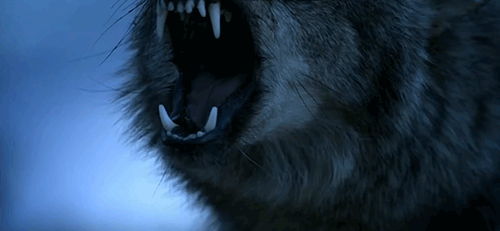
TEEN WOLF |
DEREK HALE
Snuggles & Snarles
SCOTT MCCALL
STILES STILINSKI
ISSAC LAHEY
LIAM DUNBAR
ALISON ARGENT
LYDIA MARTIN
MALIA HALE
THEO RAKEN
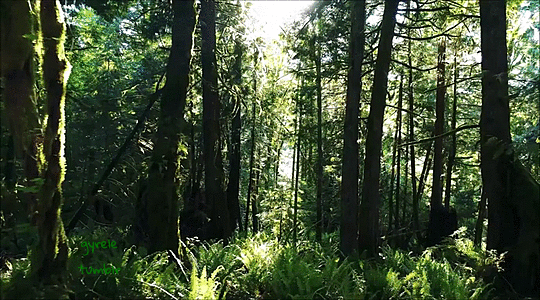
TWILIGHT |
JASPER HALE
EDWARD CULLEN
EMMETT CULLEN
ROSALIE HALE
ALICE CULLEN
CARLISLE CULLEN
JACOB BLACK
BELLA SWAN
(Any of the other wolves)

TVDU |
DAMON SALVATORE
STEFAN SALVATORE
JEREMY GILBERT
TYLER LOCKWOOD
KAI PARKER
KLAUS MIKAELSON
ELIJAH MIKAELSON
KOL MIKAELSON

Soulmates (coming soon)
Lost & Found | PART 1
Lost & Found | PART 2
FINN MIKAELSON
ELENA GILBERT
CAROLINE FORBES
BONNIE BENNETT
REBEKAH MIKAELSON
FREYA MIKAELSON
HOPE MIKAELSON

PLL |
JASON DILAURENTIS
ANGEL
Drunken Kisses
Every Minute, Every second
WESLEY FITZ
MIKE MONTGOMERY
CALEB RIVERS
TOBY CAVANAUGH
Misunderstandings
NOEL KAHN
ARIA MONTGOMERY
HANNA MARIN
EMILY FIELDS
SPENCER HASTINGS
MONA VAANDERWAAL
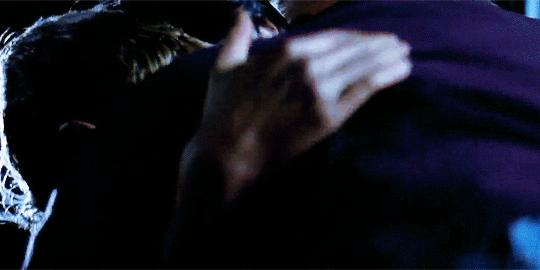
THE OUTSIDERS |
DALLAS WINSTON
JOHNNY CADE
PONYBOY CURTIS
DARREL CURTIS
STEVE RANDLE
TWO-BIT MATTHEWS
SODAPOP CURTIS
(I'm willing to write for other characters but I'm sort of unfamiliar with characters from the Shepard family.)
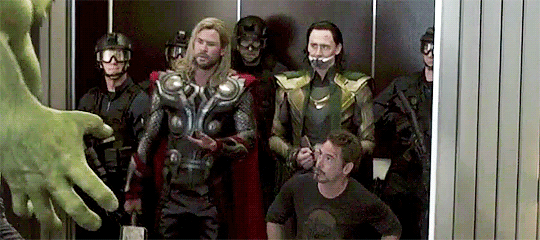
MCU |
Literally, request for any Marvel character and I will write for them.
#pretty little liars#pll#imagine#jason dilaurentis#jason dilaurentis x reader#spencer hastings#aria montgomery#emily fields#hanna marin#caleb rivers#toby cavanaugh#mona vanderwaal#teen wolf#derek hale#scott mccall#stiles stilinski#liam dunbar#theo raeken#alison argent#malia hale#lydia martin#the vampire diaries#stefan salvatore#damon salvatore#jeremy gilbert#elijah mikaelson#klaus mikaelson#kol mikaelson#elena gilbert#bonnie bennett
70 notes
·
View notes
Text
Derek Bailey / Paul Motian — Duo in Concert (frozen reeds)
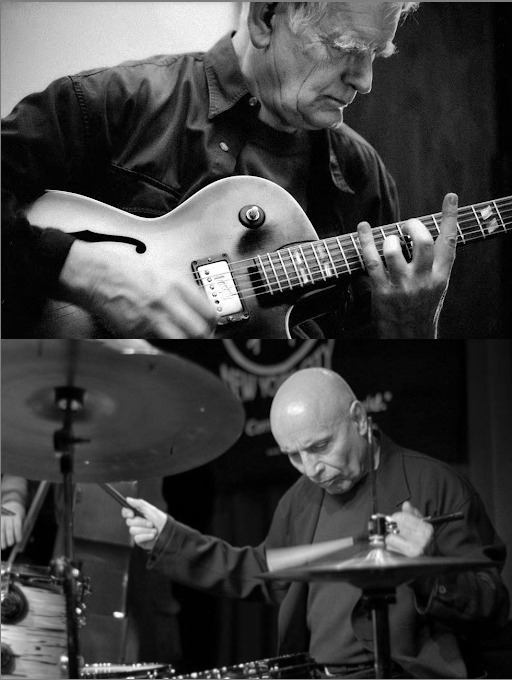
Specializing in archival recordings, the Helsinki frozen reeds label has come up with another doozy. This time unearthing in the Incus archives previously unreleased concert recordings of guitarist Derek Bailey and drummer Paul Motian for the release "Duo in Concert." Released at the tail-end of 2023, the LP version captures the duo live at the 1990 Jazz Marathon at De Oosterpoort festival in the city of Groningen, the Netherlands. As bonus digital tracks, the label offers recordings made at the New Music Cafe in New York City in 1991. A conversation between Bill Frisell and Henry Kaiser discussing these recordings and their collective experiences playing with Bailey and Motian is included as liner notes.
It's hard to approach a recording from two of my all-time favorite artists with any sense of objectivity, not to mention a heavy dose of expectation. And with a pairing that — at least on paper — doesn't immediately make outright sense, a certain degree of trepidation preempts the initial listening process as well. Accounts of both Bailey and Motian's contrariness and adversarial approach to performing are legion. Having seen both musicians live, I always had the feeling that everything could go off the rails at any moment. There was a certain sense of peril and uncertainty that pervaded their music — and not only because what they were doing was risky but more because they didn't seem to adhere to any rules of musical decorum.
When I first saw Bailey play solo in the mid-1980s, he broke off his set mid-concert to start sharing what seemed like random anecdotes with the audience, then picked right back up and started to play all over again. He stopped abruptly once more a bit later to tune his guitar (actually not much unlike what goes on in Indian classical music). It was almost as if he didn't see the point of himself being there. What he played — when he actually played — was undeniably brilliant. But his attitude came across as ambivalent and irascible, to say the least.
Similarly when I caught Motian in the early 1990s with his trio of Bill Frisell and Joe Lovano, he seemed to revel in the act of eloquent disruption, of not letting things ride but of seeking to derail and create situations where the music took sudden turns down unknown roads. Motian soloed like a kid discovering the drums for the first time, alternately bashing the toms or dropping bombs of bass drum cymbal crashes, then suddenly shifting to exquisite brush work on the snare, echoing his time with Bill Evans.
So, what was I to think of this improbable pairing? Obviously, from the start I was rooting for them. These guys were my heroes. But heroes also fall. I'm happy to say that over repeated listens "Duo in Concert" did not disappoint for one second of these recordings. It would be interesting to know if this concert in Groningen was their first meeting, or if they'd had the chance to play together in a more informal setting beforehand, because the 35-minute set sounds so fresh and invigorating. As if they had met for the first time, discovering their shared language and limitations in real-time before a festival audience. Adding to this the music also comes across as very intimate, as if Motian and Bailey had already played many years together and were picking up on a conversation they'd been having the last time they met. Consequently, both players sound not only completely engaged with the music, but actually excited by what they're coming up with. Practically as though they found themselves in a perpetual state of surprise and delight for the entire length of the concert. "Duo in Concert" is truly an inspiring listen.
There is much to expect that actually transpires: Bailey's spikey, chromatic fields played in jagged rhythmic runs across an incredibly wide dynamic range, spanning the spectrum from ringing harmonics on the verge of feedback to barely caressing the strings with his pick. And then there's Motian's incredible brush work paired with bombastic tom fills and tremorous bass drum drops. The real mystery is how this all manages to coalesce into — for lack of a more apt expression — an undeniable example of sheer poetry in sound. The mutual respect and inspiration between Motian and Bailey so evident in these recordings is in itself one of the most compelling aspects of this release.
A major unifier here would have to be Bailey and Motian's shared backgrounds in jazz. Bailey used to refer to himself in his earlier musical incarnation as previously sounding something like Jim Hall. But of course by the mid-1960s had realized he would, as Henry Kaiser states in the liner notes, have to depart for Planet Improv and leave the world of jazz behind. By this point in his long career Motian still had certainly more invested in the jazz tradition but seemed not to worry about what this meant. He'd long since moved on beyond what the rule keepers of the jazz world had imposed. Yet Motian also never went totally free like Bailey. And in fact, this would be the first record I'd heard where Motian plays from scratch, without any vague road map or composition to steer the musical proceedings.
But it is precisely this jazz background which lends an unmistakable narrative thread to the concert at Groningen. Bailey and Motian's collaboration is truly like a conversation in the most literal sense of the word. And like the greatest musical conversations in the context of jazz music, both players join together for this one brief point in time to tell a story together, listening and building their musical ideas from their dialogue. As hackneyed as this may sound, the end effect is a perfect example of instant composing, of creating a totally cohesive, rigorously structured piece of music from thin air.
And this encompasses signifiers of a more narrative approach along the way: towards the midpoint of the set, Bailey fades out to let Motian take the practically obligatory drum solo, a roiling, thunderous affair across the toms and cymbals. This is followed by Bailey jumping back in with what in a more conventional jazz piece, could be the main soloist picking up again with another long passage. Along the way Bailey engages in some of the most impressionistic and nearly melodic playing I've ever heard from him, even approaching what one could construe as comping rapid chord variations to Motian's hard-driving pulse. The set ends with Motian playing a very grooving swing pattern on the high hat that not only absolutely works with Bailey's field of dissonant harmonic notes but is in itself a stroke of genius, melding the two worlds of jazz and obdurate free improvisation with a gesture of contrast and a nod to the history both of these musicians had left far behind but by no means forgotten.
For fans of Derek Bailey and Paul Motian "Duo in Concert" is an absolute must listen. For those unfamiliar with either of these artists' work, this release would be a great place to start, not only because it captures them both at the height of their powers but is also a convincing and highly moving documentation of free improvised music that shouldn't be missed.
Jason Kahn
#derek bailey#paul motian#duo in concert#frozen reeds#jason kahn#albumreview#dusted magazine#jazz#Jazz Marathon at De Oosterpoort#live#free improvisation
10 notes
·
View notes
Text
Octavian survived AU:
also, if Jason survived and was picked up by Octavian and his accidental adopted son.
his names Khan by the way.
khan: 8
"Well, for starters, you're hurt," Kahn said bluntly, motioning to Jason's chest. "Why'd you let yourself get speared anyway? That's pretty stupid."
Jason's jaw clenched as Khan pointed out the obvious. He didn't need a lecture from a kid, especially one who didn't know the full story. "It's not like I WANTED to be speared," he grumbled.
"And then you just lay in bed all day, not doing anything," Kahn continued, ignoring Jason's comment. "Doesn't seem very fun, does it?"
Jason bristled at Kahn's words. He was recovering from a serious injury, for gods' sake! It wasn't like he was just lounging around for fun. "I'm healing, smartass," he snapped.
11 notes
·
View notes
Text
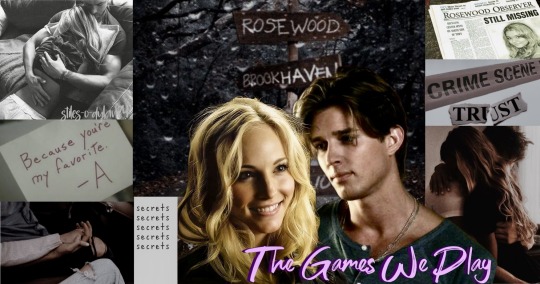
|| Jason x Aubree Marin || PLL Rewrite || TAGLIST || • AUBSON🎶 • SHIPS OF TGWP •
Season One
Chapter 1 - I'm Still Here
Chapter 2 - The Jenna Thing
Chapter 3 - To Kill a Mocking Girl
Chapter 4 - Can You Hear Me Now?
Chapter 5 - Reality Bites Me
Chapter 6 - There's No Place Like Homecoming
Chapter 7 - The Homecoming Hangover
Chapter 8 - Please, Do Talk About Me When I'm Gone
Chapter 9 - The Perfect Storm
Chapter 10 - Keep Your Friends Close
Chapter 11 - Moments Later
Chapter 12 - Salt Meets Wound
Chapter 13 - Know Your Frenemies
Chapter 14 - Careful What U Wish 4
Chapter 15 - If at First You Don't, Succeed, Lie, Lie Again
Chapter 16 - Je Suis Une Amie
Chapter 17 - The New Normal
Chapter 18 - The Badass Seed
Chapter 19 - A Person of Interest
Chapter 20 - Someone to Watch Over Me
Chapter 21 - Monsters in the End
Chapter 22 - For Whom the Bell Tolls
Season Two
Chapter 23 - It's Alive
Chapter 24 - The Goodbye Look
Chapter 25 - My Name Is Trouble
Chapter 26 - Blind Dates
Chapter 27 - The Devil You Know
Chapter 28 - Never Letting Go
Chapter 29 - Surface Tension
Chapter 30 - Save the Date
Chapter 31 - Surface Tension
Chapter 32 - Save the Date
Chapter 33 - Picture This
Chapter 34 - Touched by an 'A'-ngel
Chapter 35 - I Must Confess
Chapter 36 - Over My Dead Body
Chapter 37 - The First Secret
Chapter 38 - Through Many Dangers, Toils, and Snares
Chapter 39 - A Hot Piece of A
Chapter 40 - Let the Water Hold Me Down
Chapter 41 - Blond Leading the Blind
Chapter 42 - A Kiss Before Lying
Chapter 43 - The Naked Truth
Chapter 44 - CTRL:A
Chapter 45 - Breaking the Code
Chapter 46 - Father Knows Best
Chapter 47 - Eye of the Beholder
Chapter 48 - If These Dolls Could Talk
Chapter 49 - unmAsked
Season Three
Chapter 50 - It Happened 'That Night'
Chapter 51 - Blood Is the New Black
Chapter 52 - Kingdom of the Blind
Chapter 53 - Birds of a Feather
Chapter 54 - That Girl Is Poison
Chapter 55 - The Remains of the 'A'
Chapter 56 - Crazy
Chapter 57 - Stolen Kisses
Chapter 58 - The Kahn Game
Chapter 59 - What Lies Beneath
Chapter 60 - Single Fright Female
Chapter 61 - The Lady Killer
Chapter 62 - This Is a Dark Ride
Chapter 63 - She's Better Now
Chapter 64 - Mona-Mania
Chapter 65 - Misery Loves Company
Chapter 66 - Out of the Frying Pan, Into the Inferno
Chapter 67 - Dead to Me
Chapter 68 - What Becomes of the Broken-Hearted
Chapter 69 - Hot Water
Chapter 70 - Out of Sight, Out of Mind
Chapter 71 - Will the Circle Be Unbroken?
Chapter 72 - I'm Your Puppet
Chapter 73 - A Dangerous gAme
Season Four
Chapter 74 - A Is for A-l-i-v-e
Chapter 75 - Turn of the Shoe
Chapter 76 - Cat's Cradle
Chapter 77 - Face Time
Chapter 78 - Gamma Zeta Die!
Chapter 79 - Under the Gun
Chapter 80 - Crash and Burn, Girl!
Chapter 81 - The Guilty Girl's Handbook
Chapter 82 - Into the Deep
Chapter 83 - The Mirror Has Three Faces
Chapter 84 - Bring Down the Hoe
Chapter 85 - Now You See Me, Now You Don't
Chapter 86 - Grave New World
Chapter 87 - Who's in the Box?
Chapter 88 - Love ShAck, Baby
Chapter 89 - Close Encounters
Chapter 90 - Bite Your Tongue
Chapter 91 - Hot for Teacher
Chapter 92 - Shadow Play
Chapter 93 - Free Fall
Chapter 94 - She's Come Undone
Chapter 95 - Cover for Me
Chapter 96 - Unbridled
Chapter 97 - 'A' Is for Answers
Season Five
Chapter 98 - EscApe from New York
Chapter 99 - Whirly Girly
Chapter 100 - Surfing the Aftershocks
Chapter 101 - Thrown from the Ride
Chapter 102 - Miss Me x100
Chapter 103 - Run, Ali, Run
Chapter 104 - The Silence of E. Lamb
Chapter 105 - Scream for Me
Chapter 106 - March of Crimes
Chapter 107 - A Dark Ali
Chapter 108 - No One Here Can Love or Understand Me
Chapter 109 - Taking This One to the Grave
Chapter 110 - How the 'A' Stole Christmas
Chapter 111 - Through a Glass, Darkly
Chapter 112 - Fresh Meat
Chapter 113 - Over a Barrel
Chapter 114 - The Bin of Sin
Chapter 115 - Oh What Hard Luck Stories They All Hand Me
Chapter 116 - Out Damned Spot
Chapter 117 - Pretty Isn't the Point
Chapter 118 - Bloody Hell
Chapter 119 - To Plea or Not to Plea
Chapter 120 - The Melody Lingers On
Chapter 121 - I'm a Good Girl, I Am
Chapter 122 - Welcome to the Dollhouse
Season Six
Chapter 123 - Game On, Charles
Chapter 124 - Songs of Innocence
Chapter 125 - Songs of Experience
Chapter 126 - Don't Look Now
Chapter 127 - She's No Angel
Chapter 128 - No Stone Unturned
Chapter 129 - O Brother, Where Art Thou
Chapter 130 - FrAmed
Chapter 131 - Last Dance
Chapter 132 - Game Over, Charles
Chapter 133 - Of Late I Think of Rosewood
Chapter 134 - Charlotte's Web
Chapter 135 - The Gloves Are On
Chapter 136 - New Guys, New Lies
Chapter 137 - Do Not Disturb
Chapter 138 - Where Somebody Waits for Me
Chapter 139 - We've All Got Baggage
Chapter 140 - Burn This
Chapter 141 - Did You Miss Me?
Chapter 142 - Hush, Hush, Sweet Liars
Season Seven
Chapter 143 - Tick-Tock, Bitches
Chapter 144 - Bedlam
Chapter 145 - The Talented Mr. Rollins
Chapter 146 - Hit and Run, Run, Run
Chapter 147 - Along Comes Mary
Chapter 148 - Wanted: Dead or Alive
Chapter 149 - Original G'A'ngsters
Chapter 150 - Exes and OMGs
Chapter 151 - The Wrath of Kahn
Chapter 152 - The DArkest Knight
Chapter 153 - Playtime
Chapter 154 - These Boots Were Made for Stalking
Chapter 155 - Hold Your Piece
Chapter 156 - Power Play
Chapter 157 - In the Eye Abides the Heart
Chapter 158 - The Gloves That Rocks the Cradle
Chapter 159 - Driving Miss Crazy
Chapter 160 - Choose or Lose
Chapter 161 - Farewell, My Lovely
Chapter 162 - Till DeAth Do Us Part
#pretty little liars#pll#Jason dilaurentis#Jason dilaurentis x oc#Jason x oc#pretty little liars x oc#pll x oc#pretty little liars rewrite#the games we play#Jason dilaurentis fanfiction#Jason dilaurentis fan fiction#Jason Dilaurentis fanfic#Jason dilaurentis fan fic#pretty little liars fanfiction#pretty little liars fan fiction#pretty little liars fanfic#pretty little liars fan fic#pretty little liars masterlist#the games we play masterlist#masterlist#multiple chapters
57 notes
·
View notes
Audio
Listen/purchase: I Smile When the Sound Is Singing Through the Space by Jason Kahn / Alice Hui-Sheng Chang
Jason Kahn // voice Alice Hui-Sheng Chang // voice Eight pieces of free vocal improvisation by the duo of Jason Kahn and Alice Hui-Sheng Chang, who have been working together since 2015. "I Smile When the Sound Is Singing Through the Space" is their second release and was recorded during Jason Kahn's one-month artist residency in September 2023 at Ting Shuo Hear Say in Tainan, Taiwan
0 notes
Text

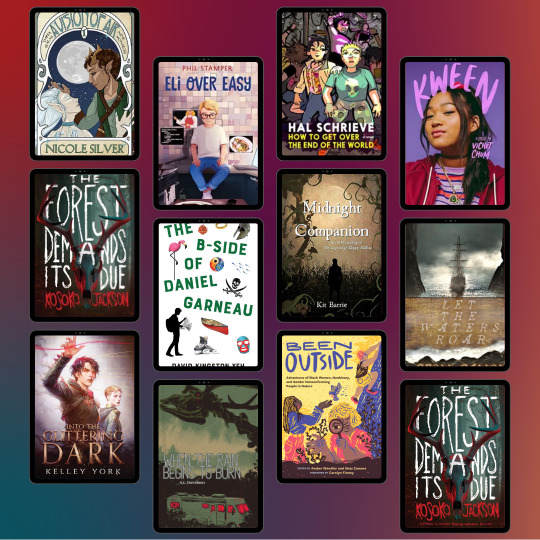

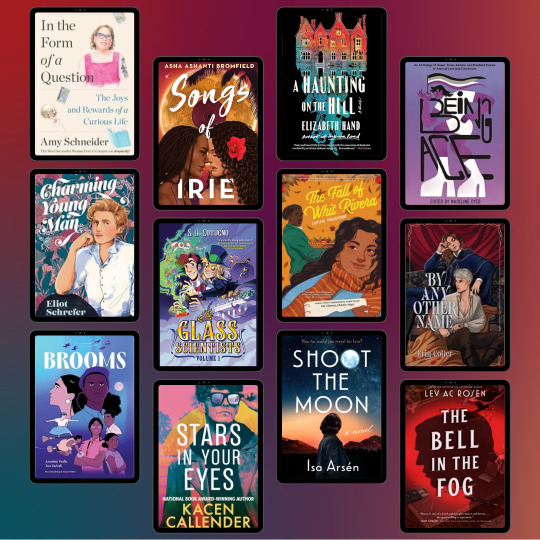

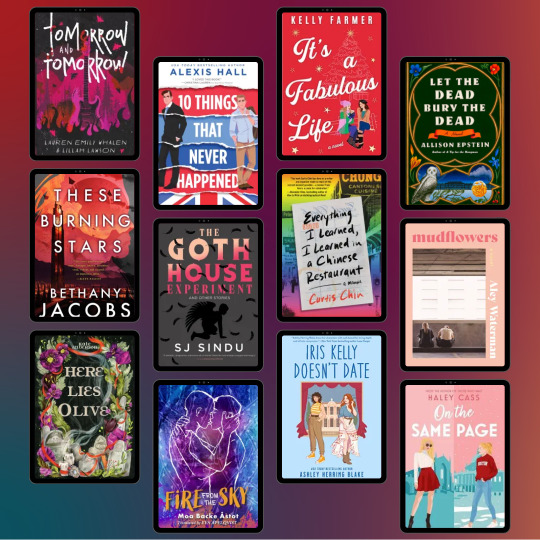
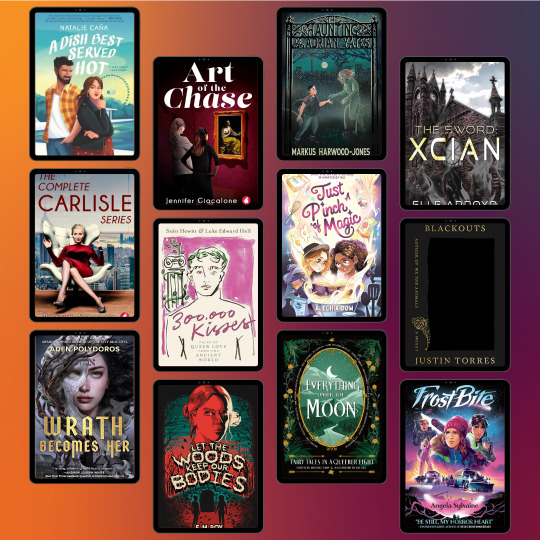
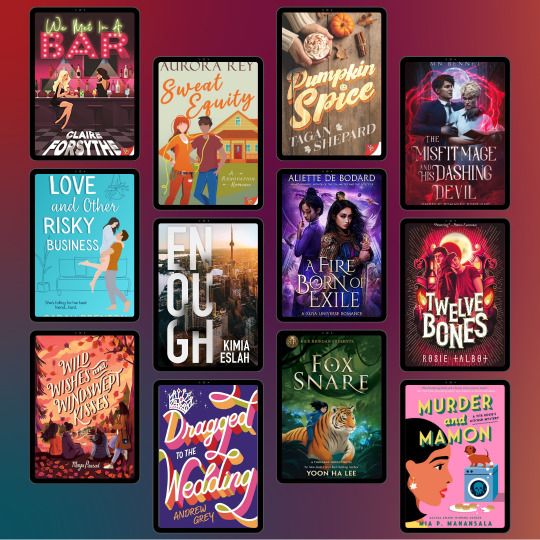
🌈 Good morning and happy Wednesday, my bookish bats! You didn't think that tiny "queer books coming out this fall" guide was ALL there was, did you? Here are a FEW of the stunning, diverse queer books you can add to your TBR this month. Happy reading!
❤️ A Vision of Air by Nicole Silver 🧡 Eli Over Easy by Phil Stamper 💛 How to Get Over the End of the World by Hal Schrieve 💚 Kween by Vichet Chum 💙 The Forest Demands its Due by Kosoko Jackson 💜 The B-Side of Daniel Garneau by David Kingston Yeh ❤️ Midnight Companion by Kit Barrie 🧡 Let the Waters Roars by Geonn Cannon 💛 Into the Glittering Dark by Kelley York 💙 When the Rain Begins to Burn by A.L. Davidson 💜 Been Outside by Amber Wendler & Shaz Zamore 🌈 The Forest Demands Its Due by Kosoko Jackson
❤️ A Necessary Chaos by Brent Lambert 🧡 The Spells We Cast by Jason June 💛 Pluralities by Avi Silver 💚 Salt the Water by Candice Iloh 💙 Beholder by Ryan La Sala 💜 This Pact is Not Ours by Zachary Sergi ❤️ Dragging Mason County by Curtis Campbell 🧡 Menewood by Nicola Griffith 💛 Mary and the Birth of Frankenstein by Anne Eekhout 💚 The Dead Take the A Train by Cassandra Khaw & Richard Kadrey 💙 Bloom by Delilah S. Dawson 💜 Let Me Out by Emmett Nahil and George Williams
🌈 In the Form of a Question: the Joys and Rewards of a Curious Life by Amy Schneider ❤️ Songs of Irie by Asha Ashanti Bromfield 🧡 A Haunting on the Hill by Elizabeth Hand 💛 Being Ace by Madeline Dyer 💚 Charming Young Man by Eliot Schrefer 💙 The Glass Scientists by S.H. Cotugno 💜 The Fall of Whit Rivera by Crystal Maldonado ❤️ By Any Other Name by Erin Cotter 🧡 Brooms by Jasmine Walls and Teo DuVall 💛 Stars in Your Eyes by Kacen Callender 💚 Shoot the Moon by Isa Arsen 💙 The Bell in the Fog by Lev A.C. Rosen
🌈 Brainwyrms by Alison Rumfitt ❤️ Family Meal by Bryan Washington 🧡 A Murder of Crows by Dharma Kelleher 💛 A Light Most Hateful by Hailey Piper 💚 Love at 350° by Lisa Peers 💙 Greasepaint by Hannah Levene 💜 The Christmas Swap by Talia Samuels ❤️ Mate of Her Own by Elena Abbott 🧡 Mistletoe and Mishigas by M.A. Wardell 💛 Elle Campbell Wins Their Weekend by Ben Kahn 💚 All That Consumes Us by Erica Waters 💙 If You’ll Have Me by Eunnie
❤️ Tomorrow and Tomorrow by Lillah Lawson and Lauren Emily Whalen 🧡 10 Things That Never Happened by Alexis Hall 💛 It’s a Fabulous Life by Kelly Farmer 💚 Let the Dead Bury the Dead by Allison Epstein 💙 These Burning Stars by Bethany Jacobs 💜 The Goth House Experiment by SJ Sindu ❤️ Everything I Learned, I Learned in a Chinese Restaurant by Curtis Chin 🧡 Mudflowers by Aley Waterman 💛 Here Lies Olive by Kate Anderson 💚 Fire From the Sky by Moa Backe Åstot, trans. by Eva Apelqvist 💙 Iris Kelly Doesn’t Date by Ashley Herring Blake 💜 On the Same Page by Haley Cass
❤️ A Dish Best Served Hot by Natalie Caña 🧡 Art of the Chase by Jennifer Giacalone 💛 The Haunting of Adrian Yates by Markus Harwood-Jones 💚 The Sword: Xcian by Elle Arroyo 💙 The Complete Carlisle Series by Roslyn Sinclair 💜 300,000 Kisses by Sean Hewitt and Luke Edward Hall ❤️ Just a Pinch of Magic by Alechia Dow 🧡 Blackouts by Justin Torres 💛 Wrath Becomes Her by Aden Polydoros 💚 Let the Woods Keep Our Bodies by E.M. Roy 💙 Everything Under the Moon: Fairy Tales in a Queerer Light edited by Michael Earp ❤️ Frost Bite by Angela Sylvaine
🧡 We Met in a Bar by Claire Forsythe 💛 Sweat Equity Aurora Rey 💚 Pumpkin Spice by Tagan Shepard 💙 The Misfit Mage & His Dashing Devil by M.N. Bennet 💜 Love and Other Risky Business by Sarah Brenton ❤️ Enough by Kimia Eslah 🧡 A Fire Born of Exile by Aliette de Bodard 💛 Twelve Bones by Rosie Talbot 💚 Wild Wishes and Windswept Kisses by Maya Prasad 💙 Dragged to the Wedding by Andrew Grey 💜 Fox Snare by Yoon Ha Lee ❤️ Murder and Manon by Mia P. Manansala
#queer book recs#queer fiction#queer books#queer#books#book list#books to read#lgbt writers#batty about books#battyaboutbooks
64 notes
·
View notes